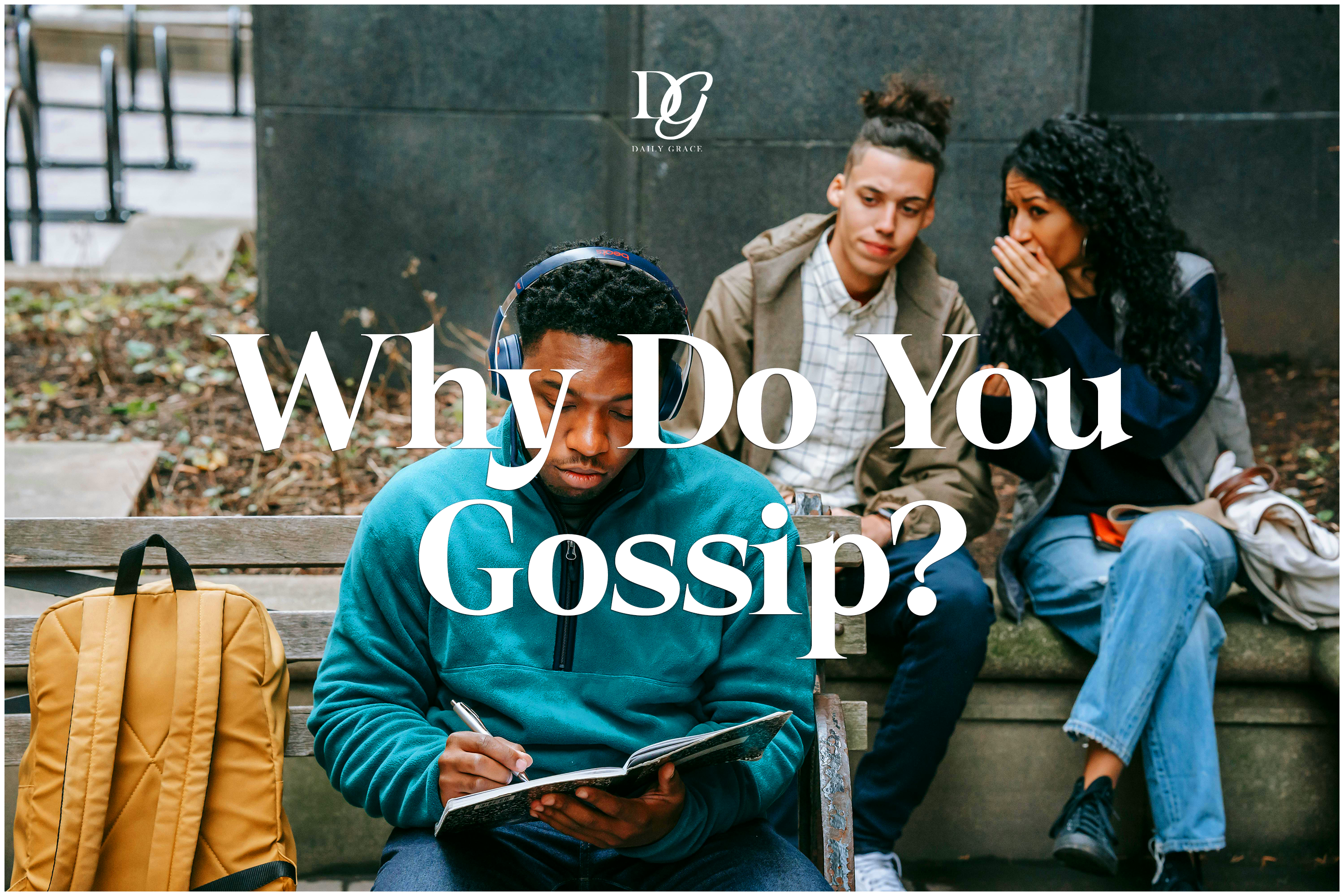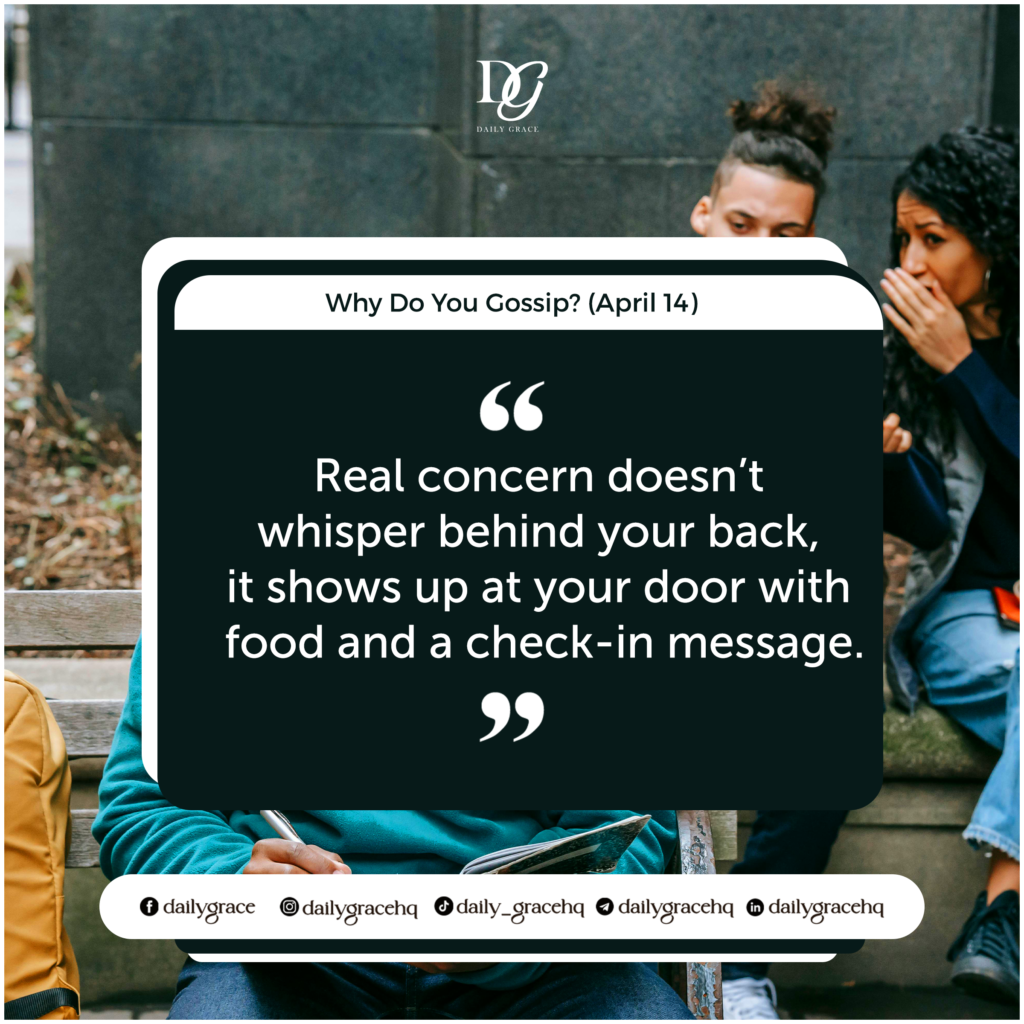Inspiring Change Every Day with Grace
Why Do You Gossip?

I remember the day clearly. A friend of mine was going through a rough patch, her relationship was shaky, she’d been distant lately, and honestly, I was worried.
So I picked up the phone and called another friend, someone I thought might know what was going on. But halfway through the conversation, I realised something: I wasn’t just asking out of concern, I was fueling the fire of speculation.
I was trying to make sense of the situation without her. And in that moment, I saw the dangerous line I had crossed, how quickly concern can morph into curiosity, and curiosity into gossip.
The hardest part about gossip is that it rarely ever feels like gossip when you’re in it. It feels like processing. It feels like staying updated. It feels like, “Well, I just want to understand what’s going on.”
But intentions matter. And many times, we mask our desire to know with a sense of duty to care. We start our sentences with, “I’m only telling you this because I’m concerned…” but somewhere in there, our words become less about them and more about us and our need to know, our thirst for the inside scoop, our subconscious hope that we’re doing slightly better than someone else.
As a teen, I saw gossip as harmless. A bonding tool. Something we did over lunch or during long walks. But over time, I’ve seen how it can break trust, stain reputations, and create a culture of fear rather than safety.
I realised through emotional maturity that if someone hasn’t entrusted their story to me directly, then perhaps it’s not mine to carry. It doesn’t matter how close I am to them or how much I care. Respect is still respect.
Interestingly, studies have shown that people often gossip to create social bonds, manage reputations, or relieve emotional tension. According to Dr. Frank McAndrew, a psychologist who studies gossip, it’s part of how humans maintain group cohesion. But that doesn’t mean it’s healthy in all forms.
Venting isn’t always validating. Sharing someone’s struggle without their knowledge isn’t always noble. The weight of someone’s story isn’t a gift to toss around, it’s a burden to steward carefully.
What made me reflect even more was being on the receiving end. I heard my name in conversations I didn’t start, stories twisted just enough to sting. And ironically, many of those who spoke did it out of concern. That’s when it hit me: gossip often says more about the speaker than the subject.
It’s not always about malice, it’s sometimes about insecurity, boredom, or even the fear of silence in a conversation. But none of that makes it okay.
Now, when I catch myself tempted to update someone about another person’s life, I pause. I ask myself if they were standing here, would I still say this? Is this my story to tell? And perhaps more importantly, if I’m so concerned, why haven’t I reached out directly? Real concern picks up the phone, shows up with food, and sends that check-in message.
To everyone who’s ever gossiped about another, it’s okay to admit we’ve gotten it wrong before. But it’s not too late to be better. Let’s be people who protect stories, not profit from them.
Let’s create safe spaces where people know their silence will be honoured, and their mess won’t become a community newsletter.
No Copyright infringement intended.
Have you ever shared someone’s story out of concern only to later realise it was gossip? What made you realise it, and how did you handle it?
Use the this link to share your story and experience anonymously https://gdpd.xyz/dailygrace
PS: Kindly Follow our WhatsApp Channel at https://whatsapp.com/channel/0029VawUlQGBPzjQXzs6fX2Q for more engaging content.

